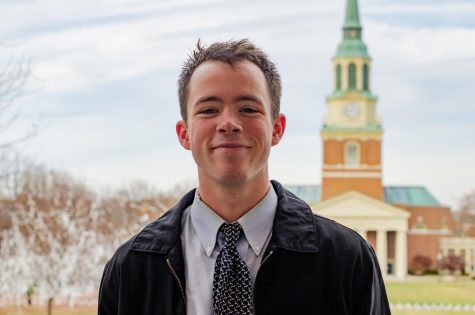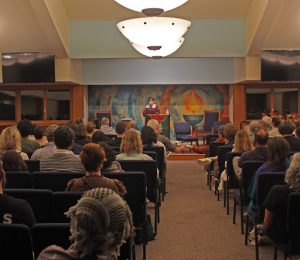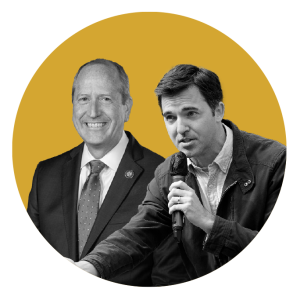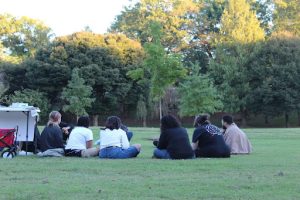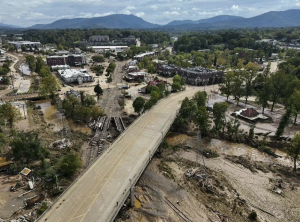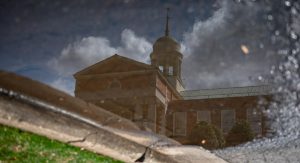Deacon Profile: Christopher Ohl
Dr. Chris Ohl is an infectious disease specialist who serves as a COVID-19 adviser to Wake Forest University.
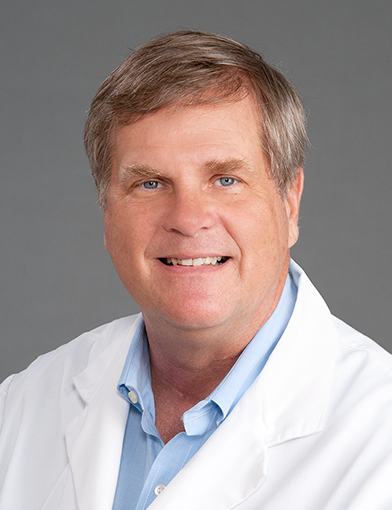
Courtesy of Wake Forest Baptist Medical Center
Chris Ohl is an infectious disease expert who has guided Wake Forest’s COVID-19 policies.
February 10, 2022
Dr. Chris Ohl is an infectious disease specialist currently working for Wake Forest Baptist Medical Center and serves as a COVID-19 adviser to Wake Forest University. Ohl received his B.S. degree from the University of Wisconsin in 1982 and his M.D. from the University of Wisconsin Medical School in 1986.
In addition to his positions at Wake Forest Baptist Medical Center and Wake Forest University, Ohl teaches as a professor in the section of Infectious Diseases at Wake Forest School of Medicine.
Can you tell me about your background and how you arrived at your position at Wake Forest Baptist Hospital?
I earned a scholarship from the Navy to attend medical school and then trained with the flagship training hospital in Washington, D.C. I initially got a lot of my experience with infectious diseases in outbreak management, now called “emerging infections.” After about 13 years of active duty, I wanted to make sure I had a future in academic medicine and landed in Greenville, North Carolina for three years. During that time, I dealt with public health responses to Hurricane Floyd in 1999. After that time, I was recruited to the Wake Forest School of Medicine and worked with antibiotic resistance. I’ve been here for 21 years, dabbling in emerging infections. It’s the best place I’ve ever lived, and I’ve been all over the world.
How is it being a leader in the medical community and working as an adviser to Wake Forest University?
Because of my Navy background, I’ve had public health experience in which I would respond to outbreaks. During my time working at a communal hospital in Japan, there was a large typhoid fever outbreak in our aircraft carrier. We had to generate a hypothesis on where [the outbreak] came from and how it was being transmitted, gather data and make an intervention. It’s the same kind of work. It has been a bit challenging, but Wake Forest has made it rewarding. The university has strong leadership and a very finely tuned group of people to get the logistics done and to make things happen.
All in all, our experience with COVID-19 has been very successful. It was a little bit miserable before vaccination, as we learned how fast the virus can transmit on campus, and unfortunately, we had to get a little restrictive for a couple of weeks there. But we got through the semester, whereas other universities had to switch back to virtual learning.
Could you give me your perspective on the current situation with the Omicron Variant of COVID-19?
The Omicron variant is a little bit different because it changed how it looks. The face of the virus, which interacts with the receptor in our body, changed. Thus, our body doesn’t recognize it quite as well. It’s kind of like grabbing the Joker, from the Batman movie and flipping his face makeup around so you don’t see him quite the same. So, our response to that was to pivot fairly quickly to the mandated booster vaccination because of early data compiled well before winter break. Not only did it keep students from getting the virus, but if they did get it, it would be nothing more than a cold and a minor infection.
We deal with colds every year on campus, it’s nothing new. But it also slowed the transmission, particularly in dorms and in parties — places where people would get together. The number of cases we’ve had in the last two to three weeks have actually been relatively minor. I think without that vaccination, things would have been much more explosive, perhaps a bit more like last year. We haven’t had to go back to what we had to do last year, which is a success. Our case numbers are coming down over the last four or five days to the same level that we had last fall.
Do you see asymptomatic testing as a necessary option to contain the spread of COVID-19?
Asymptomatic testing was necessary early in the pandemic prior to vaccination. It provided information to help us understand where the outbreaks were occurring. In the pre-vaccination period, the other tools to help contain were to test people in quarantine and isolation, which was intensely disruptive. These were the tools we used before more and more of the university population got vaccinated. As people got the booster shot, particularly those who were more vulnerable like the Wake Forest service staff, we were able to back off from asymptomatic tests.
If you’re fully vaccinated and entirely asymptomatic, what would a positive test mean for you? You’re less likely than an unvaccinated person or a symptomatic person to transmit the virus. It really wasn’t important to us as a tool to know where the outbreaks were happening. We made the decision to forgo asymptomatic testing this spring, and I stand by it. Many universities that still conduct asymptomatic testing are thinking about getting away from it because you end up isolating a lot of people. At some point, we will be safe, and I’m betting by the end of the semester that we’re going to be able to take our masks off.
Can you speak to the impact that your family has had on you during this time, and how they have helped you through some of the tough decisions that you have had to make?
My wife is also an infectious diseases doctor, so she helps keep an eye on the science that comes out. I also have a son who is 17 and a daughter who is seven. Our family is very close. Our whole family got the Delta variant in the last week of August. We were vaccinated, so we went through mild flu-like ailments while we were isolated together. It’s good to have people around you who are so loving and supportive during stressful times.
If you could give a piece of advice to students right now, what would it be?
As we enter into this third phase, it’s gonna be a lot more of doing what makes sense to you. It’s about protecting yourself and estimating how risk-averse you want to be. Some people might have an underlying health condition. We have students who have had transplants, for instance, and who are going to want to wear a mask. You should be supportive of them and understanding. When the virus circulates a little bit more, whether it be COVID-19 or whether it be the flu, take that time to lay low. Maybe that’s not the best time to have a party — wait a couple of weeks. No one likes being sick, or wants to be sick.
As time goes on, the virus is still all over. So, people can start making some of those decisions on their own. It’s about being a good citizen. I’ll take care of my friends, colleagues, classmates and teachers. People can make those decisions on their own. You don’t need the government to tell you what to do. You don’t need school leadership and the CDC to tell you, it’s just common sense. Think about what you’re doing from an individual health situation and for the health of


